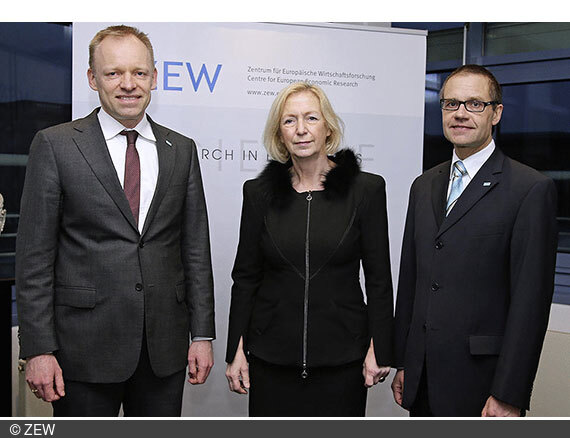Federal Minister of Education and Research Johanna Wanka Speaks at ZEW
Dates and NewsProf. Johanna Wanka, German Federal Minister of Education and Research, gave a lecture on innovation policy in Germany at ZEW within the series "First-Hand Information on Economic Policy” on February 3, 2014. About 250 guests attended the event.
Minister Wanka started her lecture with an overview of Germany’s competitive position: it is the leading exporter of knowledge-based high-tech goods, outstripping even the world’s most powerful economy, the United States. International rankings on innovation power and competitiveness have been placing Germany among the top performers. Major factors for this success are medium-sized firms that have an important position in the German economy, and the high priority accorded to education and research, said Prof. Wanka. “We must not, however, rest on our achievements,” Wanka insisted. In particular the transfer of theoretical knowledge into marketable products and services still needs to be improved in Germany, according to Federal Minister Wanka. She addressed initiatives and frameworks that have been launched – and should be expanded – to promote cooperation between the realms of academia and business. Prof. Wanka gave the examples of the “science campus” concept and the federal government’s high-tech strategy for Germany. According to Wanka, a major innovation target is to bring about a “fourth industrial revolution”, i.e. the computerization of industries such as manufacturing. The government is already planning on introducing new initiatives in this regard such as the creation of research centres that focus on big-data issues. Further challenges Prof. Wanka addressed are change in the working world, the reconciliation of family life and work, as well as the strengthening of the higher education area in Germany.

